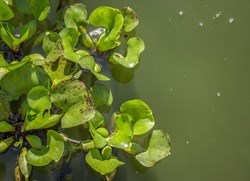
Top stories





Marketing & MediaWarner Bros. was “nice to have” but not at any price, says Netflix
Karabo Ledwaba 2 days

More news

Logistics & Transport
Maersk reroutes sailings around Africa amid Red Sea constraints


















Heavy rains in Phalaborwa over the weekend of 28 to 29 December 2013 contributed to the overflow of the tailings dam. This resulted in highly acidic water being discharged directly into the Selati River just upstream of its confluence with the Olifants River. The Selati River is an important tributary of the Olifants River, arguably the most environmentally stressed major river system in South Africa and an important shared watercourse with Mozambique.
Investigations into the environmental impact of the spillage are continuing and will be made public once they have been concluded. There is also continuous monitoring of the rivers affected to assess their condition.
SANParks took immediate precautions to ensure safe water supply to tourist camps in the park. Currently those camps dependent on water from the Olifants River have been switched onto back-up borehole water, with associated water use restrictions to ensure that the water demand can be met. Water quality is thus unaffected in KNP tourist camps.
The Department of Water Affairs and South African National Parks are cooperating closely on investigations into this incident and are conducting in-depth investigations into the associated environmental impacts. Intensive monitoring of the environmental conditions are on-going to evaluate the scale of the degradation.